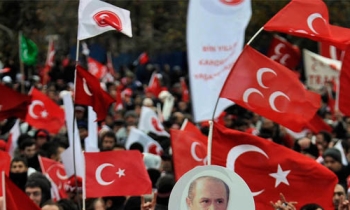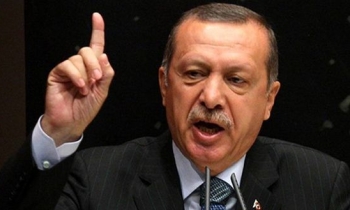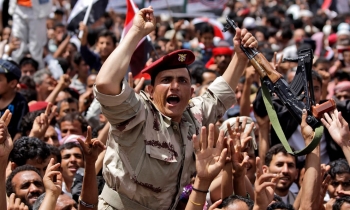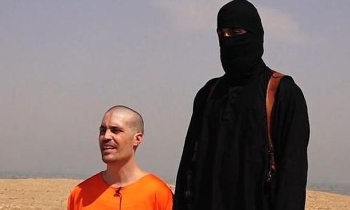A political cartoon in Pakistan which satirises the relationship between President Musharraf and President Bush has been proving very popular.
The "Bush and Mush Show" is a spoof of the news conference held during the recent visit of the US president and it is getting a lot of play.
The punch line? Bush casually dismisses concerns over Mush's democratic credentials, in Pakistani street lingo.
The lampoon seems to demonstrate a vibrant culture of criticism.
Indeed Gen Musharraf claims to have liberated the press, even though he is a military leader.
But is the reality really so rosy?
'Critical and incisive'
The media here does have the freedom to mock the leader - a freedom for which Gen Musharraf took credit at the real presidential press conference.
Television journalism has certainly taken off under his watch. The Aaj TV channel, which specialises in news and current affairs, is just celebrating its first anniversary.
There are still a few hiccups. But more than two dozen private channels are crowding the airwaves broadcasting political debate and criticism to a wider and wider audience.
But Aaj's current affairs director Talad Hussein is wary of the president's claims.
He says: "Musharraf certainly gave us licences, and therefore the private sector channels came up. But, in terms of the tradition of doing critical, incisive journalism, that was always there - embodied in print journalism that we've seen in Pakistan."
Indeed the Pakistani press has a history of being combative and taking on authoritarian governments.
But there have always been red lines. And now also there are new hazards.
Journalists marched recently to show solidarity with one of their colleagues who disappeared three months ago in Pakistan's lawless tribal region.
It is an area seen as a frontline in what the US calls its "war on terror".
Protesters say they have evidence the missing reporter was abducted by intelligence agents, which the government denies.
Journalists in the tribal areas face growing pressures. Some have been killed; many have fled.
Selad Massoud is an official in the local journalists' union.
He says: "Journalism in the tribal areas is totally paralysed. We are targeted by Islamic militants, by tribal elders and by the government - anyone who doesn't like our reports."
'Social controls'
Despite the problems the presses keep churning out the news.
But even where there is freedom, its impact is limited, in a system dominated by the military, says Mohammed Ziauddin, the Islamabad editor of the liberal Dawn newspaper.
He says: "In order for the media to be effective, you have to have two other social controls as well working in tandem: that is the parliament and the judiciary.
"At the moment, both of them are very weak. Both parliament and the judiciary are operating or functioning under the thumb of the military.
"So that way, we can report what we see, but it doesn't make much of a difference."
Compared to some countries the press is relatively free in Pakistan, with more outlets than ever before.
But it is not quite as free as it looks.









